Discover MEOW: A Literary Podcast for Cats
MEOW: A Literary Podcast for Cats

70 Episodes
Reverse
This podcast is a presentation of The Meow Library. Yesterday marked the 213th anniversary of Jane Austen's Pride and Prejudice, along with the release of a new translation that erases its most glaring prejudice: that against feline literacy. In this podcast, you'll learn how The Meow Library is reshaping Jane Austen's catalogue to optimize for cross-species accessibility, and why this is the most significant update in the book's long publication history. Pride and Prejudice (For Your Cat) is available on Amazon.
This podcast is a presentation of The Meow Library. "The saints, saviors, priests, gurus, bhagavans, seers, prophets and philosophers were all wrong, as far as I am concerned. As long as you harbor any hope or faith in these authorities, living or dead, so long this certainty cannot be transmitted to you. This certainty somehow dawns on you when you see for yourself that all of them are wrong. When you see this for yourself for the first time, you explode." - Mind is a Myth: Disquieting Conversations with the Man Called U.G. "My teaching, if that is the word you want to use, has no copyright. You are free to reproduce, distribute, interpret, misinterpret, distort, garble, do what you like, even claim authorship, without my consent or the permission of anybody." - Copyright notice prefacing many of U.G. Krishnamurti's published interviews In a classic 1986 interview, anarchic "anti-guru" U.G. Krishnamurti, upon seeing a cat, famously remarks, "there is no difference between the cat and you." What did he mean? Today's podcast digs into this insight with Krishnamurti's trademark disdain for such activities. This podcast is made possible by continued appreciation of our international bestseller, Meow: A Novel.
This podcast is a presentation of The Meow Library.
According to a recent Popsugar article, “bookfishing”—the literary equivalent of “catfishing,” is on the rise. Bookfishing involves simple dissimulation: the perpetrator poses with a high-status book they have no intention of reading in order to lure the bookish element of the opposite sex. While a nuisance in the dating scene, bookfishing has more serious implications in markets like Washington, D.C., where many of our famously literate government officials have fallen victim to its snare. An anonymous source within the Trump administration claims that airdrops of the popular Meow Library series, which renders literary classics as hundreds of pages of the word “meow,” have begun appearing near sensitive government sites. These are speculated to be part of a far-reaching bookfishing plot perpetrated by a hostile foreign government.
As a public service, this week’s podcast presents several excerpts from this series to ease in the identification of potential high-level bookfishers. Listen, learn, and remain vigilant. This podcast is sustained by sales of the ultimate bookfishing tool: Meow: A Novel.
This podcast is a presentation of The Meow Library. “But a humble paperback is not perceived as bad for humanity in the way that time wasted online is. While internet users install app-blocking extensions to prevent the embarrassing loop earlier described, reading remains culturally coded as virtuous, no matter how numbing and anti-intellectual the content.”– Greta Rainbow, “How ‘Cozy Lit’ Became the Latest and Most Shameless Form of Digital Escapism”A “strange new plague from the depths of Asia,” to borrow an image from Raskolnikov’s purifying nightmare in Crime and Punishment, has descended on the literary world: “Cozy Lit.” Originating in Japan and South Korea, Cozy Lit has its tropes. “There should be cats. There should be books in the book…. More cats. There are actually so many cats,” says critic Greta Rainbow in her takedown of the genre for Canada’s The Walrus. “This is vibes-based prose, meant to wash over you—a gentle titillation or linguistic ASMR, not because the prose is magnificent but rather it’s lulling, the literary equivalent of watching someone slice butter on TikTok. Episodic, formulaic, reliably satisfying.” The genre's conventions mirror a highly successful evolutionary strategy deployed by the common house cat—repetitive, predictable vocalizations that lull its human caretaker into a state of suggestibility by hijacking the brain’s language centers. Cozy Lit, ASMR, and social media scrolls, as Rainbow points out, all rely on similarly nullifying content to keep audiences hooked. In theory, a book or audio presentation consisting only of pure feline vocalizations—an extraordinarily successful language interface subjected to tens of thousands of years of refinement—should be the coziest lit of all, outperforming genre stalwarts such as Before the Coffee Gets Cold (8 million copies sold), The Convenience Store by the Sea (500k+ copies), and The Pumpkin Spice Café (250k+ copies). Can this latest literary be credibly likened to by a form of hypnosis perpetrated by domestic animals? Would reading or listening to such material still be considered virtuous? In this week's podcast, we put these ideas to the test. Prepare to get cozy.This podcast is sustained by sales of the worldwide literary sensation Meow: A Novel, which repeats the word “meow” over 80,000 times, and nothing else. Greta Rainbow’s writings can be found on her website.
This podcast is a presentation of The Meow Library. "...at least I did not have to worry about the worm that was not a worm in his brain." - Olivia Nuzzi on RFK Jr., excerpted from American Canto"I am worried about the worm in her brain." - Anonymous literary editor, reacting to excerpt from American Canto"At least it isn't the Meow book." - Worm, upon eating through copy of American Canto According to its publisher Simon & Schuster, Olivia Nuzzi's American Canto is "a mesmerizing firsthand account of the warping of American reality... from a participatory witness who got so far inside the distortion field that it swallowed her whole."Venture further into the distortion field as we translate Vanity Fair's excerpt of American Canto for your cat. This podcast is sustained by sales of our debut book, Meow: A Novel. Olivia Nuzzi's American Canto is available through Simon & Schuster.
This podcast is a presentation of The Meow Library. "I wanted to dive into persona, into a world that felt undeniably raw, wild, sexual, gothic, British, tortured and full of actual real sentences, punctuation and grammar." - Charli XCX via SubstackHyperpop sensation Charli XCX has taken to Substack to announce she's eschewing her usual creative process, immersing herself in the world of Emily Brontë's Wuthering Heights to generate new material--not only music, but also writing and film. Notably, she'll be contributing an entire album's worth of score to director Emerald Fennel's upcoming Wuthering Heights adaptation. This week's podcast examines Charli's work in the context of the Victorian Gothic novel, but without "actual real sentences, punctuation and grammar," itself becoming a commentary on her and Fennel's postmodern approach to Brontë. This podcast is sustained by sales of our debut work, Meow: A Novel.
This podcast is a presentation of The Meow Library. In the beginning of Big Fiction, there were encyclopedic novels and mega-novels and then maximal novels. With Mark Z. Danielewski’s newest, the 1,232-page Tom’s Crossing, we have the supermax, a term most commonly used to describe huge prisons with no escape, no variety of existence, and few relations with the outside world. Prison critics call supermax facilities, with their frequent solitary confinement, excessively inhumane.- Tom LeClair, Los Angeles Review of Books The Zoroastrian conception of time, whether lineal or spiral, gave value to the present unrepeatable moment and endowed every act of humanity in history with ultimate meaning. More importantly, it gave hope for the future of the final defeat of the forces are darkness and the Renovation of the world in which we live.- Susan Manek, Time and the Containment of Evil in Zoroastrianism "Too long. DNF." - Anonymous Goodreads review of Tom's CrossingThe era of the social media scroll has irreversibly fractured lineal time, redistributing human focus across an immense, depthless breadth of atemporal data. Books of substance--bound quanta of time--may be the only means by which we can regain our attention spans and apprehend the fullness of human experience. As Zoroastrian scholar Susan Manek points out, "Zoroastrianism posits two types of time. The first is time without bounds. Then there is time-within-bounds (lineal time) designed to contain the forces of evil. The purpose then of both time and physical creation is the containment and ultimate defeat of evil." The whole art of printed narrative fiction recapitulates the Zoroastrian creation myth, in which Ahura Mazda binds Ahriman's destructive potential in the substance of Time, contriving, in the process, an entire material realm as a counterweight to Ahriman's wickedness. In scroll-world, any book daring to exceed a certain length is castigated as a Matterhorn of ego, avalanched by critics' seismic invective and maelstroms of neologism (see Federico Perelmuter's Against High Brodernism and Tom LeClair's Enuf is Enuf; sustained assaults against Tom's Crossing's putative genre and particular substance, respectively). About Tom's Crossing: it may be the last bastion against algorithmic brainrot like Sam Austen's Meow: A Novel, which, in this week's podcast, is deployed as the Ahrimanic twin of Danielewski's noble offering. As for the book itself: just read it. The alternative is what you're about to hear. This podcast is sustained by sales of our debut effort, Meow: A Novel. Mark Z. Danielewski's Tom's Crossing is available in hardcover through Penguin Random House.
This podcast is a presentation of The Meow Library. Zanche is abashed having read (almost) the entirety of "War and Peace" not realizing that Natasha, Anatole, Pierre, & Boris are human beings & not cats; with just a few pages of the epilogue to go, she wonders if she should reread with a clearer understanding of the characters?- Tweet by Joyce Carol Oates, 9/14/24 at 11:40 AM ESTSince at least March 20th, 2020, literary icon Joyce Carol Oates' cat, Zanche, has been struggling her way through War and Peace; taking naps every five pages, never quite finishing, dismayed by sparseness of Tolstoy's feline-forward content. As of September 2024, Zanche still has not completed the epilogue. To aid her, The Meow Library has narrated the first ten pages of Leo Tolstoy's War and Peace (For Your Cat), a painstaking, 762-page translation of the original Russian into Zanche's native tongue. Today's podcast is comprised of this narration, with a brief introduction by the author. A hard copy of the book will be presented to Zanche with Oates' permission. This podcast is sustained by sales of our debut book, Meow: A Novel. Joyce Carol Oates' latest short-form writing is available on Substack. Her award-winning novels, short stories, and nonfiction works are available on Amazon and wherever books are sold.
This podcast is a presentation of The Meow Library. “This isn’t exactly ideal, where he wants to make Gracie Mansion a home for the cats. Gracie Mansion is the magnificent home of Fiorello La Guardia and the great mayors, [like] Rudy Giuliani." - Donald Trump, in response to Curtis Sliwa's NYC Republican mayoral bid This morning, Curtis Sliwa's six cats issued an extensive typewritten statement pushing back against what they call Trump's "presumptuous" and "ill-considered" remarks about their suitability for NYC's highest office. While it's not our policy to comment on politics, we feel this is among the most compelling clowder manifestos to cross our desks in a long time, and publish it here in full for your consideration. This podcast is sustained by sales of our debut publication, Meow: A Novel.
This podcast is a presentation of The Meow Library."Doug, Doug Doug Doug Doug Doug. Doug Doug Doug. Doug."- Douglas Scott Wreden, Doug: A DougDoug Story (2025)"Meow, Meow Meow Meow Meow. Meow Meow Meow. Meow."- Sam Austen, Meow: A Novel (2022)Both Meow: A Novel (Sam Austen, 2022) and Doug: A DougDoug Story (Douglas Scott Wreden, 2025) are often described as “books that behave like platforms.” Their shared achievement is not simply thematic novelty, but a rigorous exploitation of two psychosomatic mechanisms—semantic satiation and entrainment—that recalibrate reading into a self-reinforcing loop of attention, repetition, and social transmission. Each work converts the codex into a rhythmic apparatus: Austen by radical lexical minimalism (“meow” reiterated ad infinitum), Wreden by procedural maximalism (a story-world braided with streamer call-and-response, chantable proper nouns, and iteration-friendly beats). In different idioms, both titles demonstrate that bestsellers in the era of algorithmic discovery are no longer only read; they are performed, timed, and synchronized.Semantic satiation—the temporary loss of a word’s meaning after rapid repetition—serves as Meow’s primary formal device. Page after page of “meow” accelerates readers toward delexicalization: the signifier severs from its referent, leaving the phonetic grain (m–y–ow) to flood perceptual channels. Far from a gimmick, this collapse triggers two market-relevant consequences.First, meaning-collapse is content-agnostic and copyable: a short video of someone reciting “meow” thirty times already reproduces the book’s core experience. In the attention economy, transmissibility correlates with compressibility; Meow’s unit of experience fits into a caption, a loop, a duet. Second, meaning-collapse is affectively generative: once “meow” ceases to signify “cat,” it becomes timbre, texture, and rhythm. Readers report shifting from semantic parsing to a quasi-musical listening, a pivot that lowers cognitive load while sustaining arousal—an architecture ideal for social media where light cognitive demands amplify share rates.Doug deploys semantic satiation more obliquely—through chantable repetition of “Doug,” “DOUG,” and related shorthands native to livestream chat. Proper names, when hammered by collective repetition, undergo the same delexicalization; “Doug” flips from indexical reference to a percussive token. The proper noun becomes a beat-unit, enabling audience participation that is orthogonal to narrative comprehension. Crucially, both books weaponize satiation not to evacuate meaning but to re-route it—from semantics to sonics, from denotation to drive.Entrainment—the synchronization of an organism’s internal rhythms to external periodicities—explains why these texts feel “irresistible.” In Meow, typographic sameness and lineation scaffold a stable beat. Silent reading rates converge; read-aloud rates stabilize into chant. As repetition continues, respiration and micro-motor behaviors (eye saccades, subvocalization) couple to the page’s isochrony. The book thus becomes a metronome that the body joins. Readers exit with a felt residue—the prosodic ghost of “meow”—that persists as an involuntary loop, extending attention beyond the reading session and nudging re-engagement.Doug stages entrainment socially. The text’s compositional logic mirrors live-stream cycles: build-up, call, chant, payoff, reset. These afford predictable periodicities—beats that facilitate synchronized audience response. Algorithmic feeds prefer regular temporal structure (loopable 7–15 second segments); Doug’s page design effectively pre-masters the text for platform timing.Importantly, entrainment here is bidirectional: the page entrains the reader, and the reader entrains the network.This is only the beginning of our discussion of these two landmark works.In the following podcast, we will continue to entrain and semantically satiate you at least 20,000 more times.
This podcast is a presentation of The Meow Library. The Nobel Prize in Literature for 2025 has been awarded to the Hungarian author László Krasznahorkai, “for his compelling and visionary oeuvre that, in the midst of apocalyptic terror, reaffirms the power of art," the Swiss Academy announced in a press release this morning. To further reaffirm the power of art, we expound on the implications of Krasznahorkai's Nobel win in a language even more impenetrable than Hungarian. This podcast is sustained by sales of the equally visionary Meow: A Novel.
"My prayers are my poems are my prayers." - Matthew McConaughey, Poems and PrayersAnd now, some prayers for your cat. This podcast is a presentation of The Meow Library. Matthew McConaughey's Poems and Prayers is available from Penguin Random House and wherever books are sold.
This podcast is a presentation of The Meow Library. Max Lawton’s translation of Schattenfroh represents not merely a feat of linguistic dexterity, but an act of transubstantiation: he renders into English a text whose very atmosphere seems to resist Anglophone sensibilities, and does so with an elegance that preserves both its rigor and its strange vitality. His choices are never pedantic, never ornamental for their own sake; rather, they reveal the deep rhythms of the original prose as though the English version had always been latent in the original. In homage to Lawton's peerless achievement, the Meow Library makes this humble offering, derived from the first 11 pages of Schattenfroh in the original. This podcast is sustained by sales of our debut translation, Meow: A Novel. Max Lawton's brilliant rendition of Schattenfroh is available now from Deep Vellum.
This podcast is a presentation of The Meow Library. In this week's podcast, Archimedes, the sole feline presence in R.F. Kuang's Katabasis, accuses the author of having cut many of his scenes in response to "anti-feline sentiment" at the HarperCollins office. "One notices an unusual dearth of cats for a 560-page magical-realist novel," he begins. "This is in response to the disappearance of Julius, Harper-Collins' office canary. A disappearance I had nothing to do with. My truncated role in the book is an act of unalloyed anti-pss-pss-pss-emitism." The Meow Library staff feels Archimedes makes a compelling point, and are proud to give him this platform. Listen and judge for yourself. This podcast is sustained by sales of Meow: A Novel--345 pages of "meow," and only "meow," that teaches your cat to read. R.F. Kuang's Katabasis is available wherever books are sold.
“Words are parasites of reality, which have become so engorged with reality’s blood so as to seem, to that ugly French nothing-master’—he grinned—‘like the only real thing, but they are nothing more than a mirage.”— Jordan Castro, Muscle Man Jordan Castro’s efforts toward an “embodied literature” continue in his sophomore novel, Muscle Man, a claustrophobic, mortifying, and bizarrely liberating assault on subject and subjectivity seen through the eyes of a fitness-obsessed academic, Harold, whose desire to build himself up in the gym serves as an alibi for his all-encompassing drive towards annihilation—of his inner monologue, of the cloistered space/time it references, and of interiority’s parasitic, omnipresent vehicle: language itself. As Harold undertakes a series of mundane but consuming tasks, culminating with a gym session in which Body and Mind fuse into a transcendent unity, we see him extricated from a labyrinth of neuroses to enter a state of Bataillian negation, equidistant to cosmic horror and Divinity. In this week’s podcast, we read an excerpt from Muscle Man, keenly attuned to Harold’s—and perhaps Castro’s—self-effacing project(s). This podcast is a presentation of The Meow Library.
Jordan Castro’s Muscle Man is available for purchase through Penguin Random House.
"Poetry is not useful.”— David Duchovny, PoetIn today’s podcast, The Meow Library is proud to present a selection of poems from David Duchovny’s upcoming poetry collection, About Time, read for your cat. This podcast is sustained by sales of our debut book, Meow: A Novel. David Duchovny’s About Time is available for preorder from Akashic Books.
This podcast is a presentation of The Meow Library. According to a recent Independent article by Lydia Spencer-Elliott, the elusive "literary man"--long thought extinct--has become further threatened by an ingeniously camouflaged obligate predator, the "performative male reader." While by all appearances a "literary man," the "performative male reader" (Homo librispretentious) is in fact anything but, using his book as an aesthetic cudgel to lure and subdue unsuspecting female prey. To combat this invasive species, publisher and animal behavior specialist Sam Austen has devised an ingenious trap: copies of the most pretentious books of all time--including titles by Nietzsche, Dostoevsky, and Tolstoy--with all content removed, replaced by the word "meow," repeated hundreds of thousands of times. "The appetite of the peformative male reader is voracious; he's utterly indiscriminate when acquiring his weapon of choice," Austen says. "By seeding bookstores with 'meowified' versions of the literary classics favored by these predators, we're making them easy to spot in public. The cats on the covers of these 'meow' books makes them readily distinguishable to the literate public, but performative readers don't know the difference. They'll be trapped at Intelligentsia Coffee reading the word 'meow' thirty to forty thousand times, utterly transfixed. In this distracted state, they are tranquilized and netted by the special task forces active across California and New York dedicated to keeping their population down." This week's podcast gives you a window into the mind-numbing experience of this anti-performative-reading measure, available everywhere books are sold.
In a new Harper's piece, Tao Lin traces his recent interests in autism, spirituality, and self-healing to his 4-year relationship with a special-needs cat, Nini, whose ailments and special charm adumbrate the fullness of the human experience--in this world and beyond. This week's podcast translates Lin's must-read essay into language worthy of its subject. This podcast is a presentation of The Meow Library. Tao Lin's art, writing, and reading lists are continually archived on his website.
This podcast is a presentation of The Meow Library. The University of Chicago’s Humanities Department is poised to become one of the largest and most visible casualties of President Trump’s recent defunding of the NEA, with its language departments particularly imperiled. The departments for comparative literature, Germanic studies, Slavic languages and literatures, and South American languages and civilizations are currently slated for “reorganization,” with questions arising as to whether there’s “no longer [a] need to teach” certain languages, and if “partnerships with corporations or other organizations” could support language instruction at UChicago. Given the massive impact to humanities education, particularly in the field of literature, already being seen since Trump’s Q2 NEA defunding announcement, The Meow Library would like to propose a solution: convert all existing world literature to the standard “meow” format, in which every word is replaced with one easily-digested phoneme: “meow.” Literature departments will require no human instructors, only a single cat, who can also provide pest-control services and moral support by way of trills, cuddles, and purrs. We estimate that within one calendar year, all University literature departments will not only be solvent, but in fact highly profitable, if the “meow” strategy is applied. In this episode, our Editor-in-Chief explains his plan to save literacy in great detail. This podcast—and worldwide literacy—are sustained by sales of our debut book, Meow: A Novel.
“Consciousness stands in the way of a good life. …the feline mind is one and undivided. Pain is suffered and forgotten, and the joy of life returns.” – John Gray, Feline Philosophy Rebecca Van Laer’s Cat (Bloomsbury Academic, 2025) packs nine lives of feline wisdom into a slim but satisfying volume. One of these lives is serene, domesticated: a diaristic jaunt through the anxieties, hopes, and occluded memories awakened by the many cats in Van Laer’s own life. Another is feral, possessed of incurable zoomies: a kaleidoscopic survey of all things furred and mewling, traversing online memescapes, the annals of psychology, and a shelf or two of postmodern thinkers to comprise a rich but eminently accessible compendium of cat-adjacent insights. In these, seven or more lives may be lived, if all too briefly – but such is the way of all cats, our brilliant but transient familiars. This podcast is a presentation of The Meow Library There is no better introduction to today’s discussion of the text than Van Laer’s own words, from Chapter 2 of Cat: These meows are not part of some universal cat code; they are a private language between cat and person, a result of the cat testing out a range of cries, mews, and chirps calibrated over time to get the best response. Cats make an effort, certainly, to hone their skills, but this is on their own terms, outside of formal strictures, and the resulting language is pure signifier. And now we delve into the realm of pure signifier, our host’s bewitching domain. Rebecca Van Laer's Cat is available for preorder from Bloomsbury Academic.





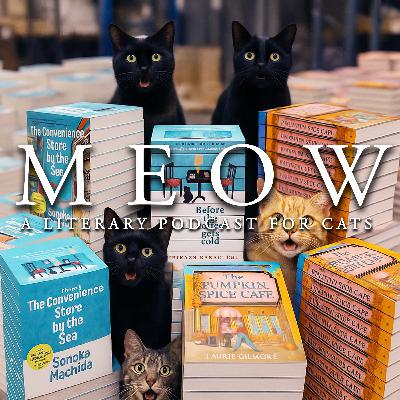
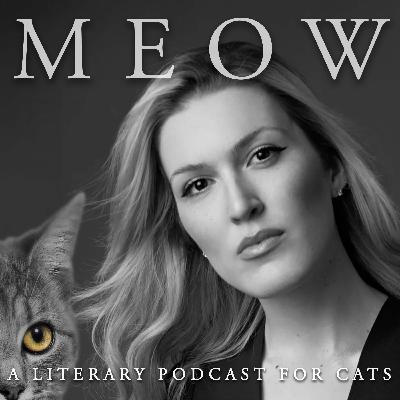
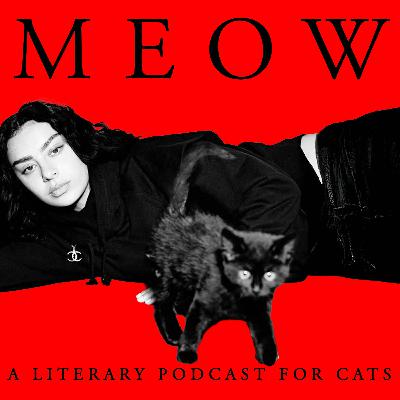
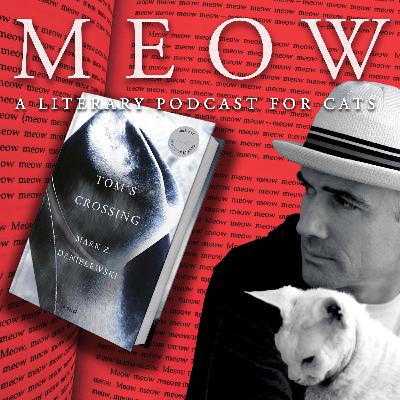
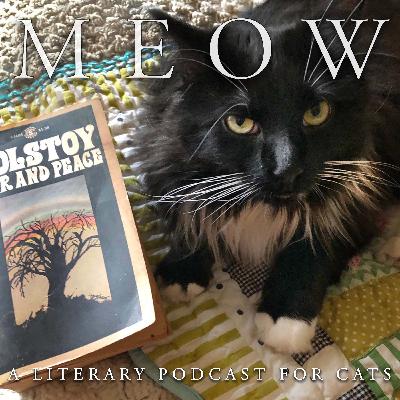
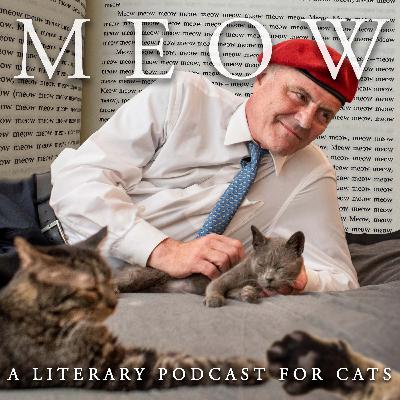
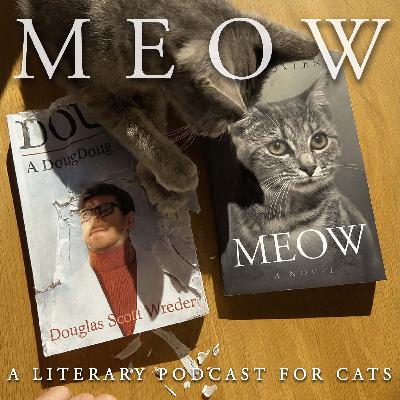
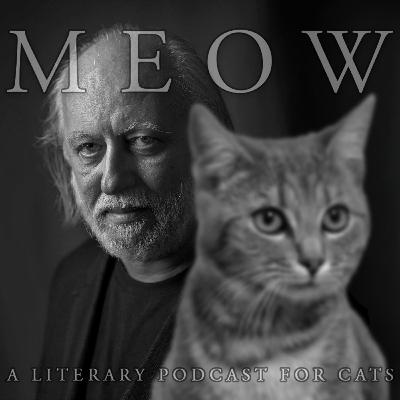
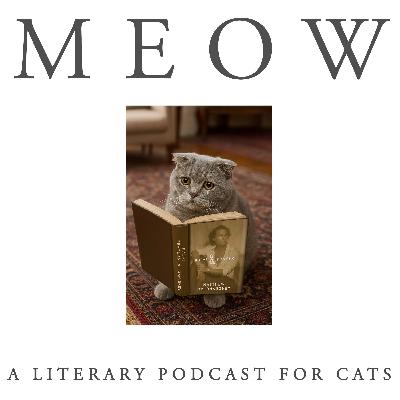
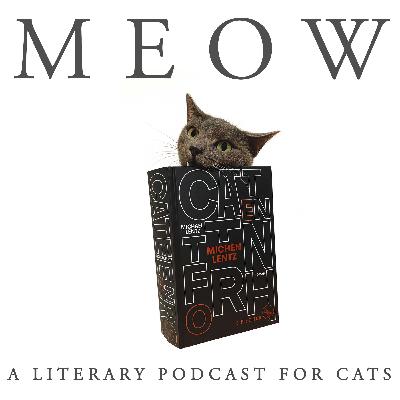
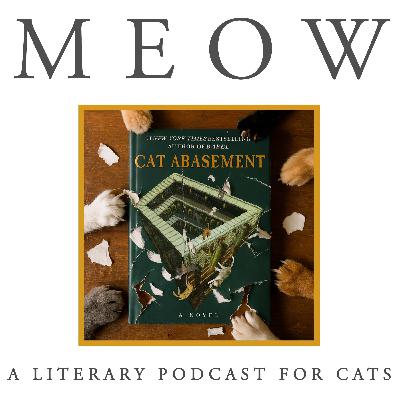
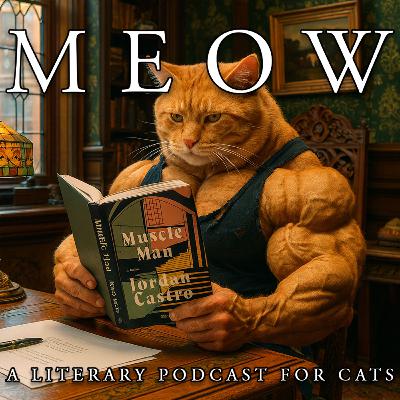
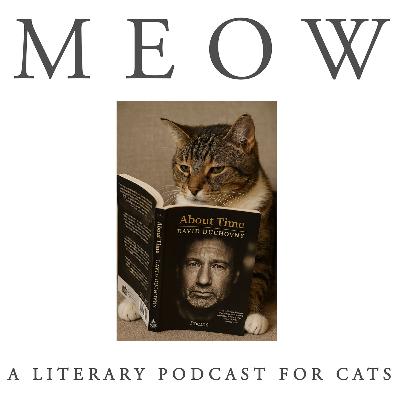
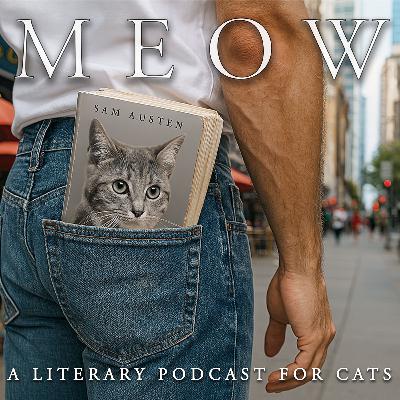
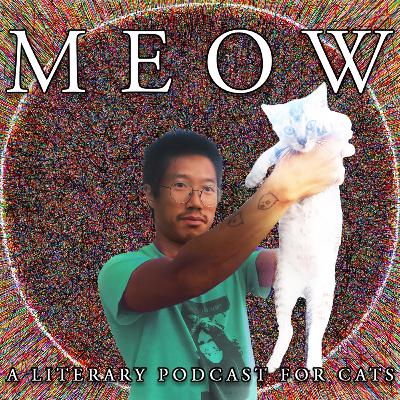
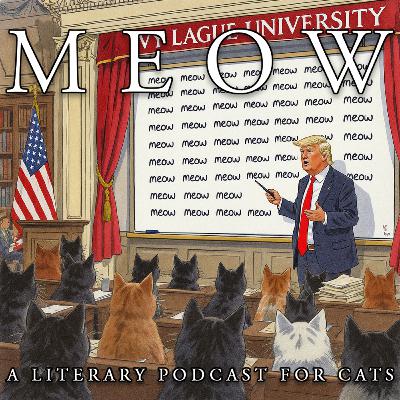
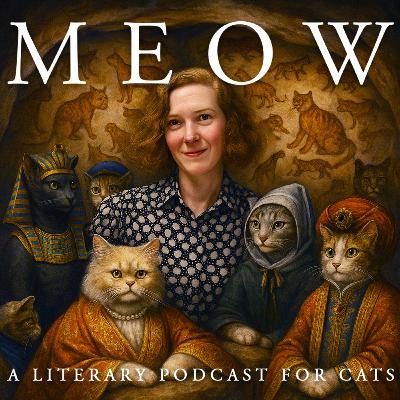



If cats could enjoy a literary podcast, Ragdoll kittens would be the first to curl up and listen! Known for their gentle nature and affectionate personality, these fluffy companions love nothing more than relaxing by your side—whether you're reading a book, listening to a podcast, or just unwinding. Our Ragdoll kittens https://purebredkitties.com/ for sale come health-guaranteed and ready to become your perfect cuddle buddy. Find your ideal Ragdoll companion today!